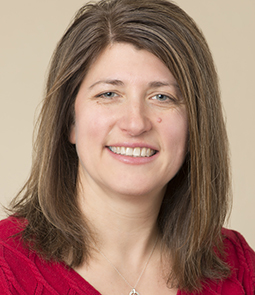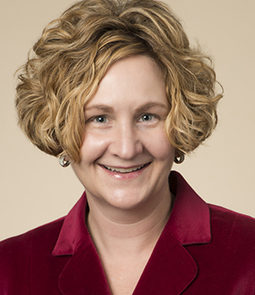Endocrinology
Our specialists care for all conditions related to the endocrine glands, including diabetes, thyroid, pituitary and other disorders.


Meet our physicians and providers

M. Gabriela Fernandez Manrique, MD
Endocrinologist

Richmond Gyamfi, MD
Endocrinologist

Sarah Mirocha, MD
Endocrinologist

Lynnette Clancy, MSN, APNP
Nurse Practitioner, Endocrinology

Jolene Dorn, MS, RDN, CD
Pediatric Registered Dietitian Nutritionist

Megan Drewieske, APNP, FNP-C
Nurse Practitioner, Endocrinology

Heather Grace, RD, CD, CDE
Registered Dietitian

Heather Meeusen, APNP, FNP-BC
Nurse Practitioner, Endocrinology
Endocrinology, diabetes and nutrition services

Diabetes: What is it?
An estimated 30 million Americans, or 9.4 percent of the population, have diabetes, which occurs when there is too much sugar in the bloodstream or when your blood glucose, also called blood sugar, is too high. Over time, having too much glucose in your blood can cause health problems such as heart disease, nerve damage, eye problems and kidney disease. A simple blood test can tell if you have diabetes.
Type 1 diabetes occurs when the pancreas makes very little or no insulin. People with type 1 must take insulin daily to replace the insulin their bodies are not making. This form of the disease is most often seen in children, but it can occur at any age.
Type 2 diabetes is the most common type. In type 2, the body is unable to use insulin properly and sugar cannot be carried to the cells. Although the pancreas makes some insulin, it is not enough to overcome insulin resistance.
Download an infographic here: Top 5 Things to Know About Type 2 Diabetes & Heart Disease
Gestational diabetes is a temporary form of diabetes that can occur when women are pregnant. Although this form of diabetes usually disappears after the baby is born, more than half of women with gestational diabetes develop type 2 diabetes later in life.
Monogenic diabetes is a less common form of which is inherited.
Prediabetes occurs when blood glucose (sugar) levels are higher than normal, but not high enough for a diagnosis. Over time, this can increase the risk of heart disease and stroke, as well as the risk for developing type 2 diabetes. According to the National Institute of Health, an estimated 84.1 million American adults have prediabetes.
Diabetes can be managed and most people with the condition live a long and healthy life by taking care of themselves daily.
Diabetes can affect almost every part of the body. By managing blood glucose, as well as blood pressure and cholesterol, can help prevent health problems that can occur with diabetes.
Type 1 diabetes occurs when the pancreas makes very little or no insulin. People with type 1 must take insulin daily to replace the insulin their bodies are not making. This form of the disease is most often seen in children, but it can occur at any age.
Type 2 diabetes is the most common type. In type 2, the body is unable to use insulin properly and sugar cannot be carried to the cells. Although the pancreas makes some insulin, it is not enough to overcome insulin resistance.
Download an infographic here: Top 5 Things to Know About Type 2 Diabetes & Heart Disease
Gestational diabetes is a temporary form of diabetes that can occur when women are pregnant. Although this form of diabetes usually disappears after the baby is born, more than half of women with gestational diabetes develop type 2 diabetes later in life.
Monogenic diabetes is a less common form of which is inherited.
Prediabetes occurs when blood glucose (sugar) levels are higher than normal, but not high enough for a diagnosis. Over time, this can increase the risk of heart disease and stroke, as well as the risk for developing type 2 diabetes. According to the National Institute of Health, an estimated 84.1 million American adults have prediabetes.
Diabetes can be managed and most people with the condition live a long and healthy life by taking care of themselves daily.
Diabetes can affect almost every part of the body. By managing blood glucose, as well as blood pressure and cholesterol, can help prevent health problems that can occur with diabetes.

Managing diabetes
Diabetes can be managed and most people with the condition live a long and healthy life by taking care of themselves daily.
Diabetes can affect almost every part of the body. By managing blood glucose, as well as blood pressure and cholesterol, can help prevent health problems that can occur with diabetes.
Diabetes can affect almost every part of the body. By managing blood glucose, as well as blood pressure and cholesterol, can help prevent health problems that can occur with diabetes.

Prevea diabetes education
Prevea Health has certified diabetes care and education specialists (CDCES) working in the Diabetes Self-Management Education and Support (DSMES) program. This program is designed to help you learn how to live healthier with diabetes. Whether you have pre-diabetes, newly-diagnosed diabetes or have lived with diabetes for many years, a CDCES at Prevea can help you meet your diabetes health goals.
Certified diabetes educators are specially trained to help you overcome obstacles in your diabetes management plan as well as help you set new health goals. We will focus on seven key behavior areas:
Certified diabetes educators are specially trained to help you overcome obstacles in your diabetes management plan as well as help you set new health goals. We will focus on seven key behavior areas:
- Healthy eating.
- Being active.
- Monitoring.
- Taking medication.
- Problem solving.
- Healthy coping.
- Reducing risks.

Thyroid and pituitary disorders
Hormones play a large role in everyone’s daily health and well-being. Each part of your body from your brain to your skin, heart, kidneys and your muscles has a specific job. They take direction from your endocrine system to get the work done. The glands of the endocrine system send out hormones that tell each part of your body what work to do, when to do it, and for how long. Hormones are vital to your health and well-being and affect many different processes, including:
- Growth and development
- Metabolism – how your body gets energy from the foods you eat
- Sexual function
- Reproduction
- Mood






